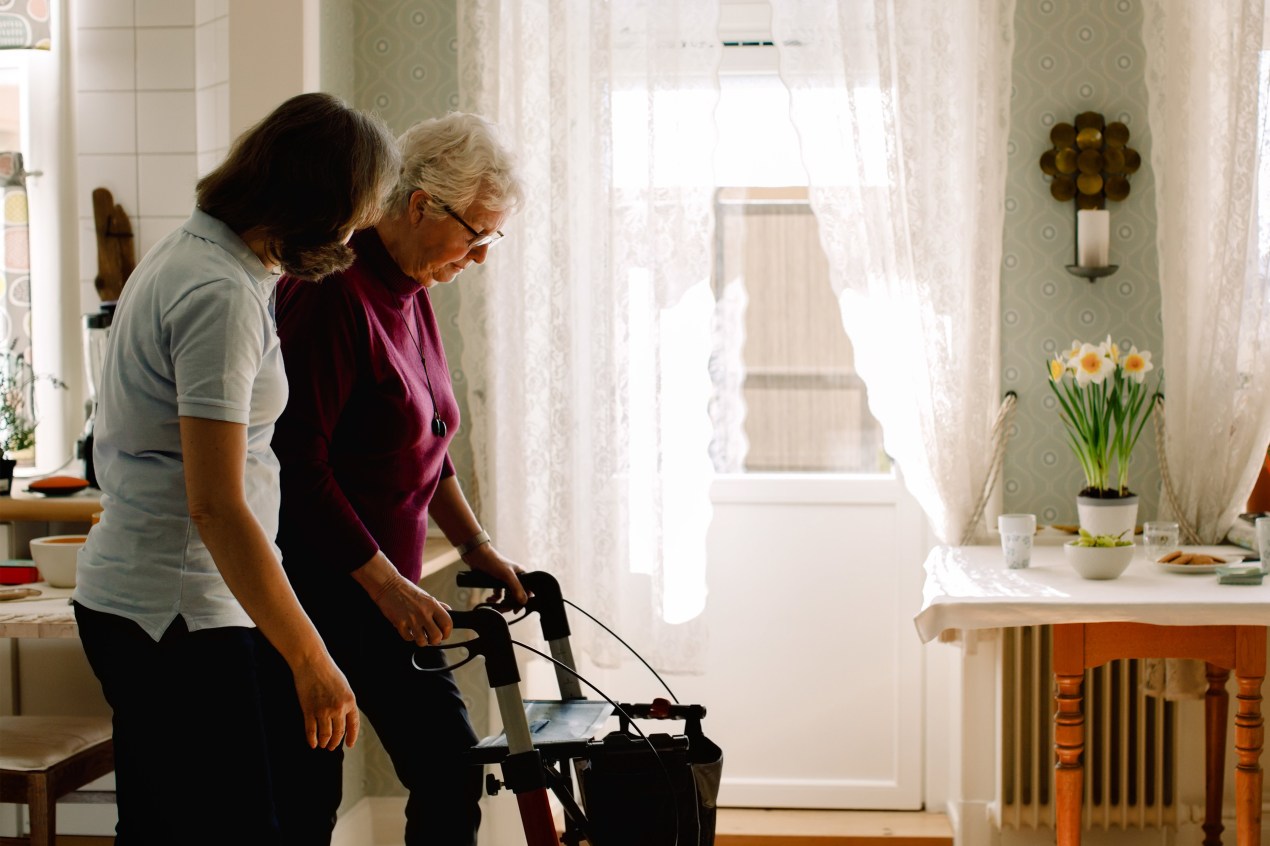Exceptional Memory Care Charlotte: Approaches for Engaging and Sustaining Residents
Exactly How to Provide Purposeful and Customized Dementia Care
The provision of meaningful and tailored mental deterioration treatment requires a nuanced understanding of each person's distinct background and choices. Treatment strategies have to be tailored to engage the individual in methods that reverberate with their previous experiences, thereby promoting psychological connections and enhancing general health.
Understanding Dementia Individuality

Care suppliers must analyze cognitive abilities, moods, and behavioral patterns to produce individualized treatment strategies. This might consist of adjusting communication styles, using acquainted regimens, and making use of significant activities that resonate with the person's previous experiences. For circumstances, involving an individual with an enthusiasm for music via music tasks might evoke positive memories and boost psychological health.
Additionally, comprehending individuality fosters a thoughtful technique that respects the dignity and autonomy of those coping with mental deterioration. It motivates caregivers to listen proactively, observe behavioral cues, and remain flexible in their caregiving methods (memory care facilities charlotte). By focusing on individuality, caretakers can not only improve the lifestyle for those with mental deterioration however also develop an extra profound understanding of their one-of-a-kind point of views, inevitably leading to extra compassionate and efficient treatment
Structure Trust and Rapport
Establishing trust fund and connection is basic in dementia care, as it creates a risk-free and encouraging setting for people impacted by the problem. Structure these links requires regular, caring communications that prioritize the needs and sensations of the individual. Caregivers must come close to interactions with empathy, recognizing the unique obstacles dealt with by those with dementia, consisting of memory loss, confusion, and emotional distress.
Efficient communication is essential in this process. Caregivers must use clear, straightforward language and non-verbal hints to share understanding and support. Energetic paying attention shows regard and recognition, allowing people to express themselves without worry of judgment. Furthermore, maintaining a calm attitude can aid alleviate stress and anxiety, promoting a sense of safety and security.
Establishing a regimen can additionally enhance trust. Experience with day-to-day activities and caregivers advertises a feeling of stability, making it possible for people to really feel even more at convenience. It is vital to involve with individuals on a personal level, making the effort to learn regarding their biography, choices, and interests. By doing so, caregivers strengthen the individual's identity, advertising self-respect and regard, eventually resulting in stronger, much more significant connections in the context of dementia treatment.
Tailoring Tasks and Interaction
Engaging people with dementia with tailored activities can substantially enhance their top quality of life and cultivate a deeper link between caretakers and those in their care. Customization is crucial, as it recognizes the one-of-a-kind backgrounds, interests, and abilities of each person. Activities need to be created to stimulate cognitive functions, advertise physical movement, and urge social interaction, all while click for info remaining enjoyable and fulfilling.
To tailor tasks properly, it is critical to evaluate the person's choices and cognitive abilities. For circumstances, some may discover pleasure in gardening, while others may appreciate music or art. Basic, familiar jobs can stimulate favorable memories and provide a feeling of achievement. In addition, incorporating elements of routine can provide comfort and security, permitting people to involve with activities extra with confidence.
Caregivers can boost interaction by getting involved alongside the individuals, promoting a supportive and interactive environment. It is likewise important to continue to be adaptive and versatile, changing activities as required based on the individual's energy degrees and mood. Eventually, purposeful involvement via customized activities not only boosts people with mental deterioration yet additionally enriches the caretaker partnership, advertising mutual satisfaction and understanding.
Effective Interaction Strategies
Efficient communication is important in dementia care, as it fosters a feeling of connection and understanding in between caregivers and individuals experiencing cognitive decline. Utilizing reliable communication methods can dramatically enhance the high quality of interactions and decrease aggravation for both celebrations.
First of all, using basic, clear language is necessary. Acquainted words and short sentences assist people understand and react better. Furthermore, maintaining a calmness and favorable tone can produce an encouraging environment, which is critical for individuals who might feel confused or distressed.
Non-verbal communication plays a substantial role. Caregivers should take note of body language, faces, and gestures, as these signs can typically communicate greater than words - memory care charlotte. Establishing eye contact and using gentle touch can additionally communicate and strengthen links empathy
Active listening is one more essential element. Caretakers need to be mindful, permitting people to share themselves fully, also if their speech is fragmented or unclear. This lionizes and motivates extra open interaction.
Last but not least, validating experiences and feelings is crucial. Acknowledging emotions, no matter their basis actually, can offer comfort and enhance the caregiver-individual partnership, advertising a more helpful ambience.
Sustaining Household Involvement
Family members check out here participation plays a substantial function in the overall treatment and support of people with dementia. Involving household members creates a collective environment that improves the high quality of treatment, cultivates emotional links, and guarantees that the distinct demands of the individual are satisfied. Relative usually have very useful understandings right into the person's background, preferences, and habits, which can be vital in developing individualized treatment strategies.

Furthermore, household participants can be urged to take part in daily care tasks, such as involving in significant conversations or assisting with familiar regimens. This not only helps sustain the individual's sense of identity but likewise enhances familial bonds. Ultimately, by fostering an inclusive approach that values household contributions, treatment carriers can improve the overall experience for both individuals with dementia and their liked ones.
Conclusion
Finally, supplying customized and purposeful mental deterioration care requires a comprehensive understanding of each person's unique history and choices. Establishing depend on and relationship via caring interactions is important for producing a secure environment. Customizing activities to resonate with individual passions enhances discover this psychological wellness and promotes self-respect. Reliable interaction strategies better support this procedure, while actively including relative improves the caregiving experience and cultivates deeper connections. Jointly, these methods contribute to boosted high quality of life for people with mental deterioration.
The arrangement of purposeful and individualized mental deterioration treatment needs a nuanced understanding of each individual's one-of-a-kind history and preferences. By doing so, caretakers enhance the person's identity, advertising self-respect and respect, inevitably leading to stronger, more significant partnerships in the context of mental deterioration care.
Involving people with dementia with tailored tasks can dramatically enhance their quality of life and foster a deeper link between caretakers and those in their treatment.Family members involvement plays a substantial duty in the overall care and support of people with dementia. Ultimately, by fostering a comprehensive method that values household contributions, treatment suppliers can improve the total experience for both individuals with mental deterioration and their enjoyed ones.